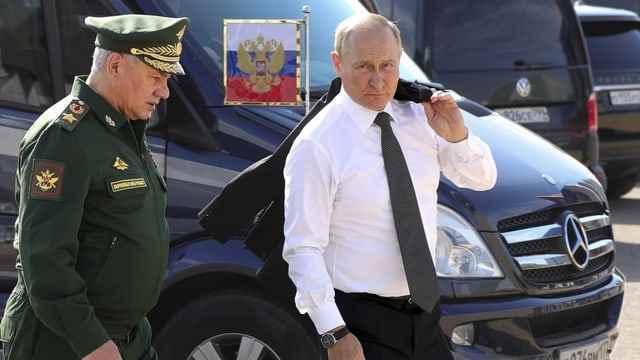Almost seven months after the start of the war of aggression against Ukraine, Russia has ordered a partial mobilization of the army. Kremlin chief Vladimir Putin said 300,000 reservists would be called up immediately to solve the personnel problems at the front in Ukraine. For the former SRF correspondent in Russia, David Nauer, Putin’s nuclear threat, which was also expressed, is a “blatant verbal provocation”.
SRF News: What does the partial mobilization of 300,000 reservists mean in concrete terms?
David Nauer: Not really much at first. Russia has too few troops at the front, which is why the Ukrainians managed to liberate the country in the past few weeks.
It will be weeks before the reservists show up at the front in Ukraine.
Putin wants to plug these “holes” at the front, but that will take time: the reservists first have to be drafted, then armed and trained. It will be weeks before they show up on the front lines in Ukraine.
How does Putin justify the need to take the step in front of his own people?
He portrays Russia as a victim: the West wants to destroy Russia and has incited Ukraine to go to war against Russia. According to Putin, Kyiv not only does not want to conduct negotiations, the Ukrainian government even wants to acquire nuclear weapons.
Putin says it’s not just a war against Ukraine, it’s a war against NATO and the West.
Implicitly, Putin says: It’s not just a war against Ukraine, it’s a war against NATO and the West. That is why this partial mobilization is needed.
In the areas in eastern Ukraine annexed by Moscow, referendums on joining Russia are to be held at the end of the week. How do these sham referendums relate to Putin’s latest announcement?
The worrying thing is that Putin said Russia will recognize these referendums – which will be pseudo-votes with a predetermined outcome – and annex the territories. After that, Russia will ward off any attack on its territory “by any means”.
Putin is counting on Ukrainians and Europeans becoming afraid of a nuclear war.
So Putin is saying that Russia is now annexing these Ukrainian territories and that if the Ukrainians try to retake them, all weapons will be used, possibly nuclear bombs too. That’s a blatant verbal escalation. Putin is building up a threatening backdrop and is counting on Ukrainians and Europeans becoming afraid of a nuclear war – a kind of psychological blackmail. It is not known whether Putin is actually considering using nuclear weapons – but it is certainly a very dangerous threat.
Raphael Günther conducted the interview.

